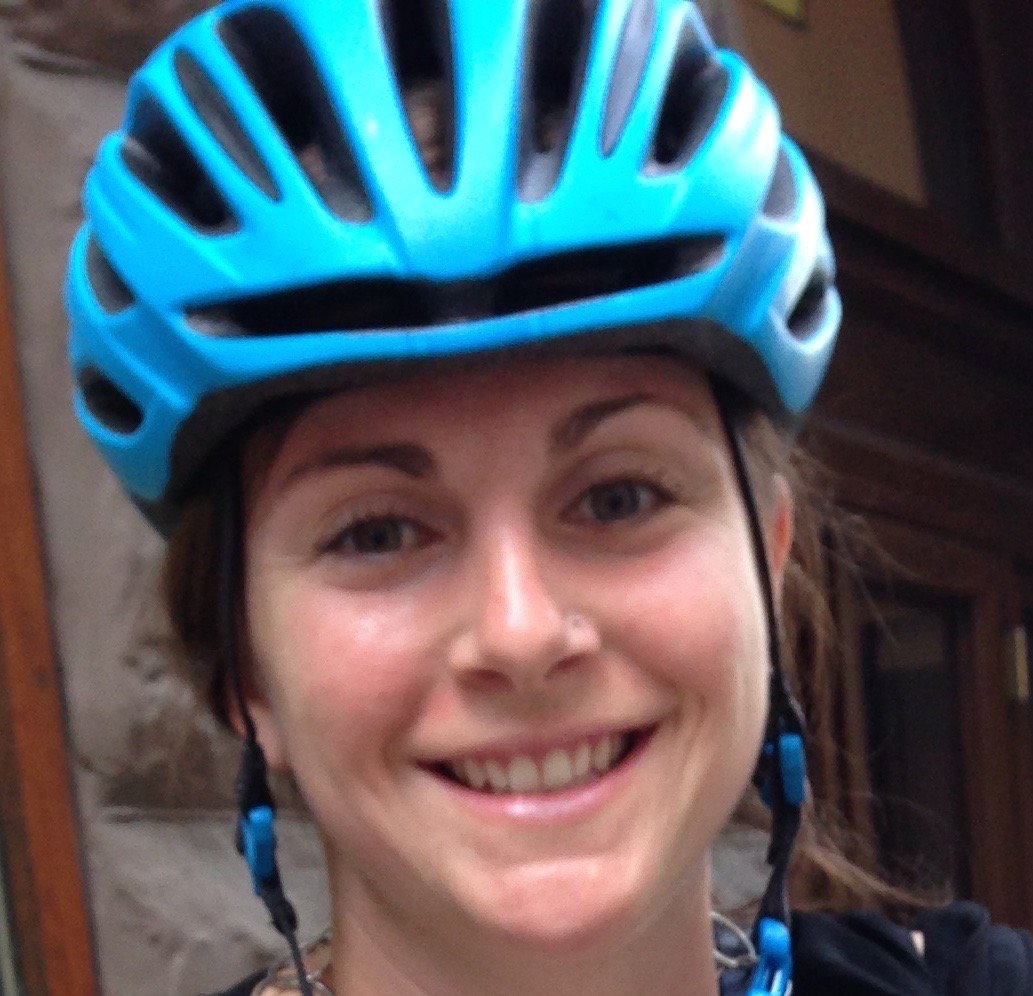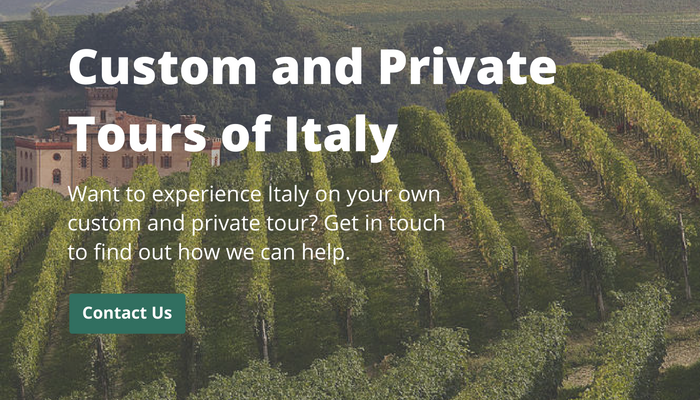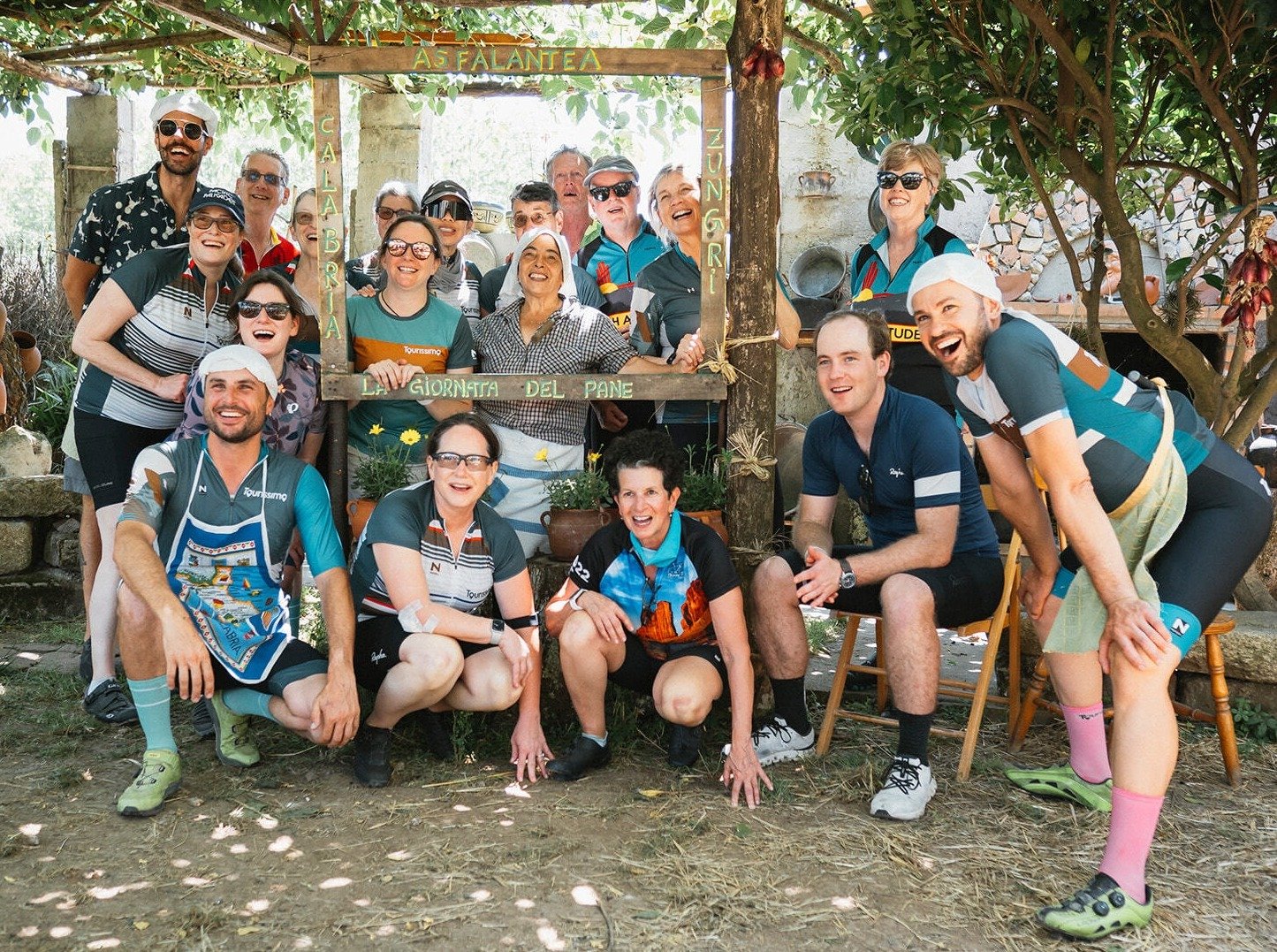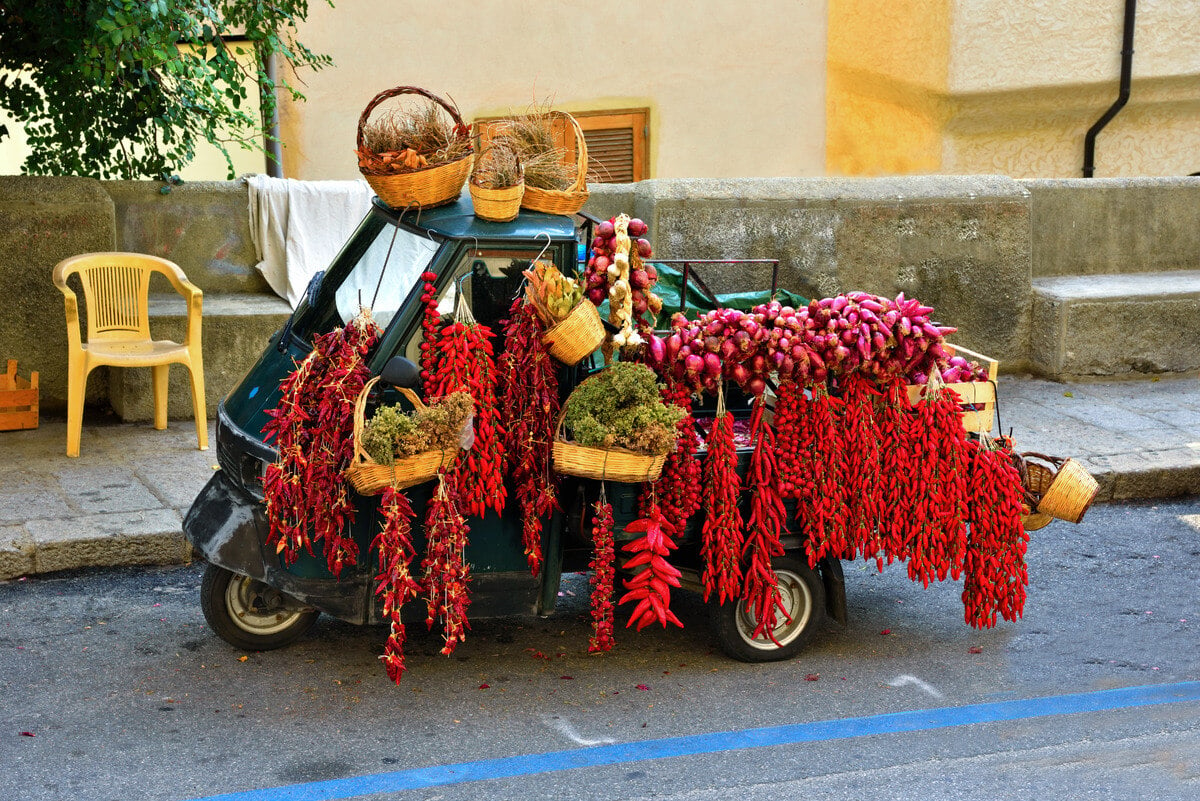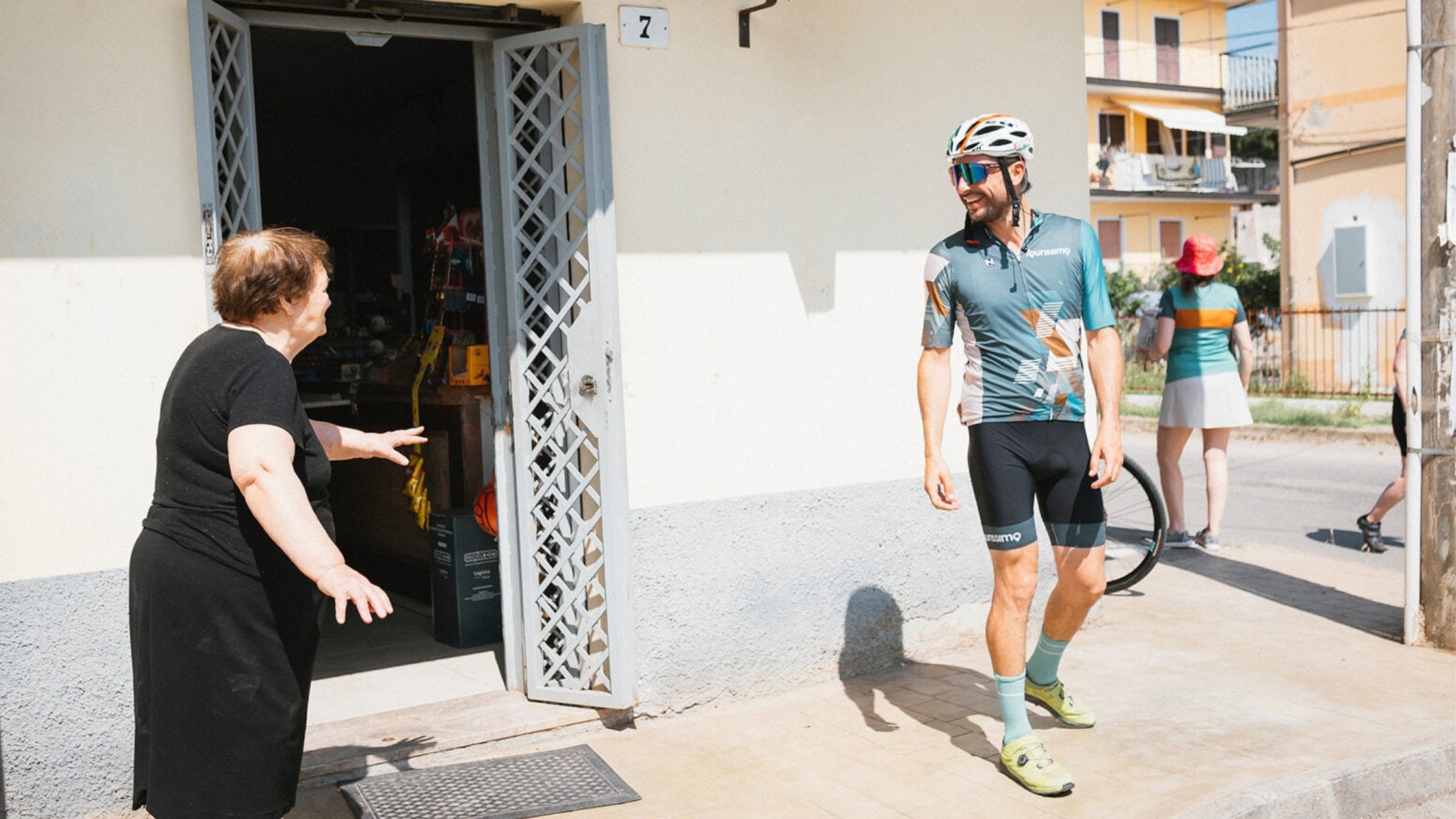In 2022, the Mediterranean Diet was named the Best Diet in the World by US News & World Report for the 5th year in a row. It has been shown to fight obesity and limit the production of cholesterol in the body, a major factor in heart disease.
The Mediterranean Diet was first publicized in 1975 in the book, "How to Eat Well and Stay Well: The Mediterranean Way," by the husband and wife team of American biologist Ancel Keys and chemist Margaret Keys. They developed this diet based on a large-scale study they conducted, as well as their time (30+ years) living in a small town on the Cilento Coast in Italy.
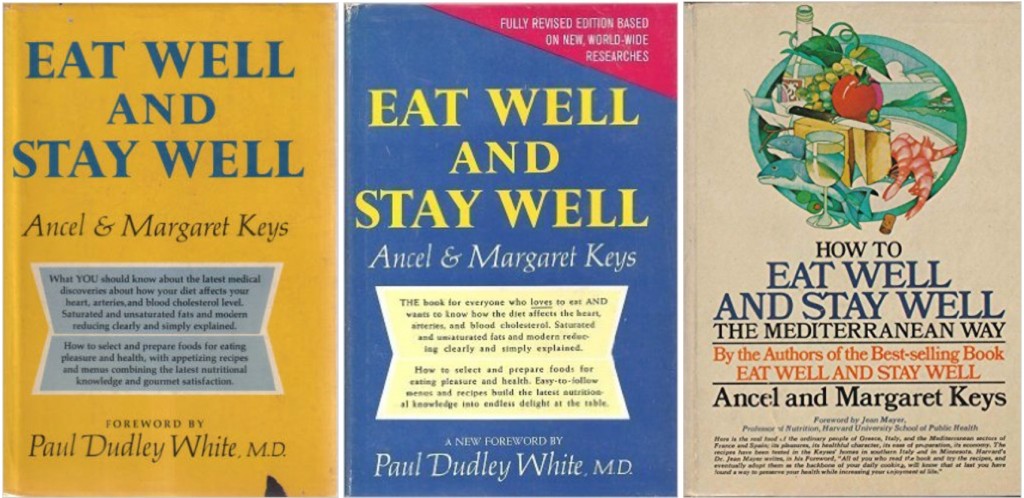
The Study
After WWII, increased prosperity in the USA led to a richer diet and a growing problem of heart disease. In 1954 Ancel Keys was told by a professor in Naples that cardiovascular ailments were not prevalent in Italy, and this led him to conduct a comparative study across seven countries to investigate the reasons. Over 12,000 men, all rural laborers between the ages of 40 and 59, were chosen from 16 communities in Italy, the Greek islands, Yugoslavia, the Netherlands, Finland, Japan and the United States and monitored over several decades. This pioneering survey, for the first time, discovered the links between heart disease, cholesterol and diet.
To further test and study this theory, from 1963 to 1998 the Keys lived and worked in Pioppi, a fishing village on the Cilento Coast south of Salerno. It was there that they learned more about the eating habits and lifestyle choices that contributed to the happy, healthy long lives of the locals.
What to Eat
The Mediterranean Diet features simple, plant-based cooking, with the majority of each meal focused on fruits and vegetables, whole grains, beans and seeds, with a few nuts, and a heavy emphasis on extra virgin olive oil. Red meat occasionally makes appearance, usually only to flavor a dish. Instead, meals may include eggs, dairy and poultry, but in much smaller portions than in the traditional Western diet. Fish, however, is a staple. Sugary desserts are consumed on special occasions, and fruit is the preferred after-meal treat. All ingredients are fresh, local and in season. It's all washed down with a glass of local wine.
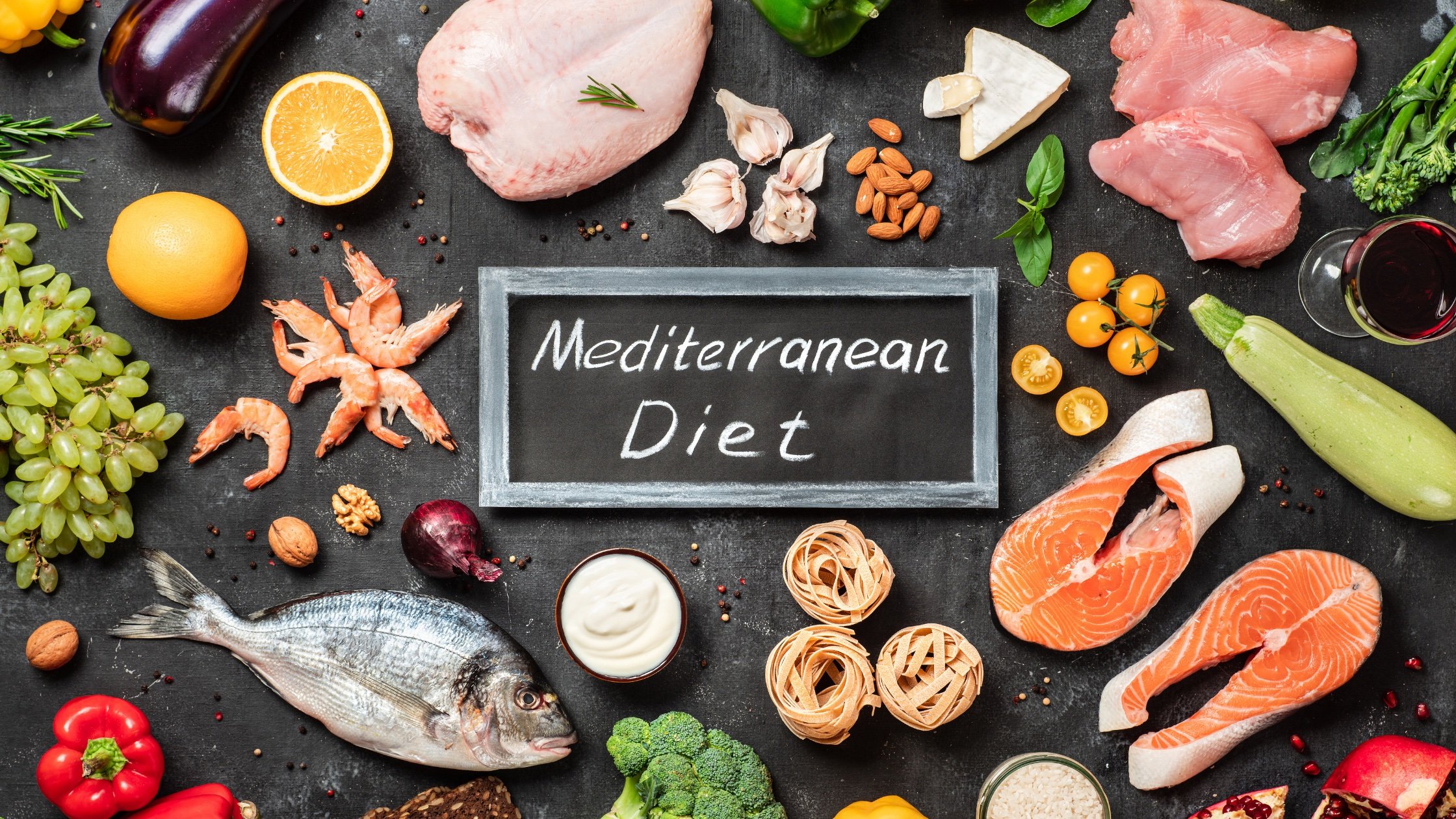
More than Food
The Mediterranean Diet extends far beyond the food you eat; it also focuses on how you eat it. Meals are not rushed, and they are shared with family and friends.
Daily exercise is important, but it doesn't have to be at a gym. The lifestyle of the Mediterranean Diet includes daily walks (see our blog on the passeggiata), and more walking during the day in general.
Socializing and participation in society well into old age is also the norm. Seniors remain active and relevant, and are looked after by extended family.
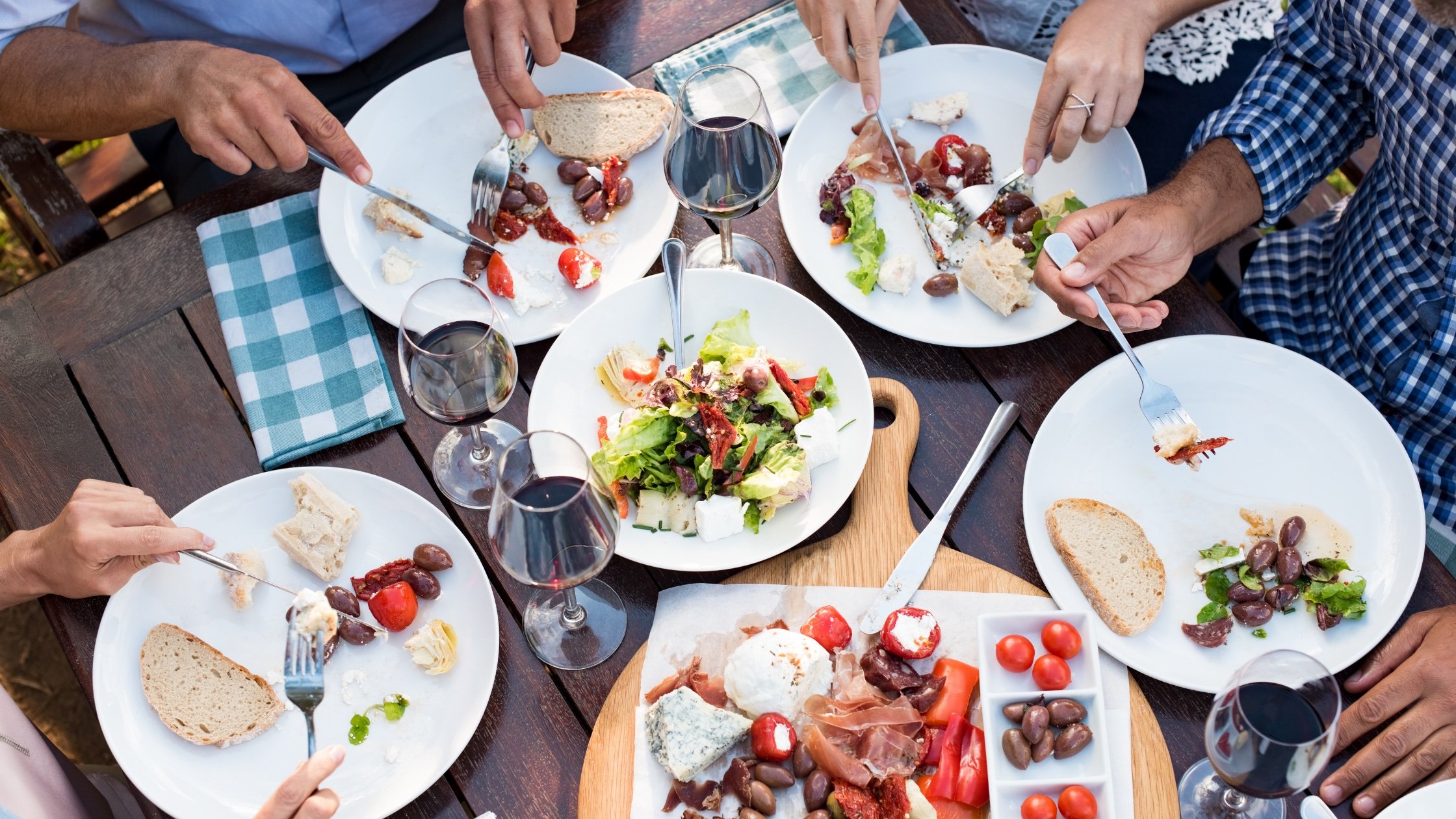
Modern Day
Ancel Keys adhered to the Mediterranean Diet while in Pioppi and well into old age, and he lived to just shy of his 101st birthday. While in Pioppi, it was actually his housekeeper that inspired/taught him and his wife the local culinary and social traditions (see below for an interview with the housekeeper, Delia Martinelli, that appeared in the Italian Newspaper, La Stampa, in 2019 where she talks about her 30+ years working for the Keys).
In small villages in Italy the Mediterranean Diet is still alive and well, however, in the cities (and among the younger generation in general) fewer and fewer people are following it. Local foods and traditions are giving way to modern conveniences, isolation, a sedentary lifestyle, and fast food.
There are movements to promote and preserve the Mediterranean Diet. In 2010, UNESCO recognized it on its List of the Intangible Cultural Heritage of Humanity. Organizations such as Slow Food International educate on local foods and traditional recipes.
There is also a shift in the tourism sector, away from taking large groups to visit museums and famous monuments, and instead to immersing their guests in the local and traditional food culture in off-the-beaten-path locations. This is a main focus on all Tourissimo tours, and is the highlight of of our Chef Bike Tours.
Can't make it to Italy just yet? CNN recently published an article about steps you can take at home to implement the Mediterranean Diet in your own life.
Meet The Doctor's Maid Who Inspired The Mediterranean Diet
A housekeeper with serious culinary skills helped feed the mind and mouth of Ancel Keys, the American doctor famous for documenting the health benefits of Mediterranean food.
CILENTO — She wrote the most significant chapter in the culinary history of Italy, and didn't even know it. And all because of a respect for tradition and visceral love for her land: Cilento.
Located in the southwestern province of Salerno, Cilento is the envy today of countries like the United States and Russia, where globalization has caused a spike in instances of obesity and chronic diseases. It's also where maid and top-chef Delia Martinelli, 82 — with her ladle and pots — returned Italy to the top of a singular ranking as the country with the best cuisine in the world, both in terms of taste and health benefits.
For more than 30 years, from 1965 to 2000, she was the maid of the Keys household. It's a surname that in Pioppi, a small fishing village with some 200 inhabitants in the dead of winter, is as well known as that of Vassallo, the mayor of a neighboring commune gunned down in 2010 by members of the Camorra crime syndicate. A surname that, for adepts beyond the village borders, is code for the Mediterranean diet, which is more a way of life than a simple dietary regimen, and was recognized in 2010 as part of the intangible cultural heritage of humanity by UNESCO.
Feeding the family
It was in this capacity that Donna Delia found herself as a living witness to what became the career of Ancel Keys, the American physiologist who died a centenarian in 2004 after having chosen this stretch of Salerno shoreline as his dwelling of choice for four decades: for work and for pleasure.
"Aside from eating well, we move a lot and we are never alone."
Arriving in Naples in the 1950s, where rates of cardiovascular-related deaths were very low, the doctor decided to remain in Campania and to settle in Pioppi for extended periods of the year, taking many of the local dietary habits as his own. It was here, nestled between the steep hill of Pollica and the deep blue sea, that the scientist reached his most significant conclusions.
Comparing the dietary habits and rates of cardiovascular disease of the inhabitants of Salerno with those of six other nations, Keys showed that the main risk factors for heart and artery health are found, in addition to smoking, in the levels of animal fat present in the diet. He also discovered, interestingly enough, that the poor often eat better than the rich.
Thus, the myth of the Mediterranean diet was born, characterized by a large consumption of plant-based foods. Olives, chestnuts, figs, endives, Cicerale chickpeas and Controne beans are distinctive elements of the diet during this season. But in the fields and on the boats, the work is year-round: cultivating wheat, caring for lemon trees, picking vegetables and bringing anchovies to shore.
In Cilento, where Delia's son and his wife run a small trattoria often frequented by researchers from the oldest and most prestigious European and American universities, traditions persist. Signora Delia answers the phone at 7 p.m., but it is still early for dinner. "We eat little in the evening: some anchovies with lemon, a piece of bread, a glass of wine and fruit," she says.
Plenty of time, then, to reminisce. "When I arrived at the Keys house, I was 25 and had never been out to work before. But it didn't take me long to get acclimated. I was a housekeeper, like so many others, who took care of all the household chores. I immediately understood, however, that Mister Ancel and his wife Margareth were very interested in my cooking," Delia recalls.
"We're not used to having ragù often in my house."
That interest seemed strange to someone who recognized as tradition what two Americans considered an absolute novelty. After a few weeks, the "Kissi" couple, as Delia pronounces it, began to ask so many questions about the dishes that ended up on their table every day.
"The professor loved lentil and bean soups, but also anchovies and garden olives," she says. Delia cooked with what the vegetable garden offered, nothing more. "We used simple sauces as condiments, every now and then seasoned with fish. We're not used to having ragù often in my house."
What she did use were lots of anchovies, which made their way into the dishes just hours after being unloaded from the boat of Signore Giannino, Delia's husband. "He spent a lifetime at sea," she explains. "He would go out every night and came back in the early morning when I was ready to start work at the Keys house."
Nourishing the heart
Delia gave a lot of herself to the Keys, but the exchange of knowledge went both ways. You can hear it in the way she talks about kilocalories, food pyramids and preventive medicine. And on the subject of why people in Cilento live longer than average, her ideas are clear.
"Aside from eating well, we move a lot and we are never alone," she says. "Having the ones we hold dear close to us is like eating a sweet every day" — the difference being that such emotion nourishes the heart without expanding the waistline.
"The ultimate goal is to establish a research institute on the Mediterranean diet in Pioppi."
For this reason, in an attempt to recover a lifestyle that is now largely lost in Italy, there are ever more legions of tourists choosing to immerse themselves in one of the 80 communes of Cilento National Park, Vallo di Diano and the Alburni mountain range. Their mission: a return to the origins.
"The Mediterranean diet must become a model of social, economic and cultural development," says Stefano Pisani, who took over as mayor after his predecessor, the fisherman Angelo Vassallo, was killed in a Camorra ambush in 2010. "Health advantages aside, this lifestyle has reduced our impact on the environment. Joining our cause means defending the planet during this crucial phase, in light of the ongoing climate change."
Considering that on the other side of the Atlantic, people are ready to spend hundreds of euros to receive a bottle of extra virgin olive oil pressed in Cilento, the ultimate goal is to establish a research institute on the Mediterranean diet in Pioppi.
"All this acquired knowledge must be integrated into the technological developments of our era, so that we don't lose it," continues Pisani. Something almost unimaginable for Nonna Delia, though it is already done by way of history books.
"I never would have imagined it, but I've lived like a queen here in the heart of Pioppi."


